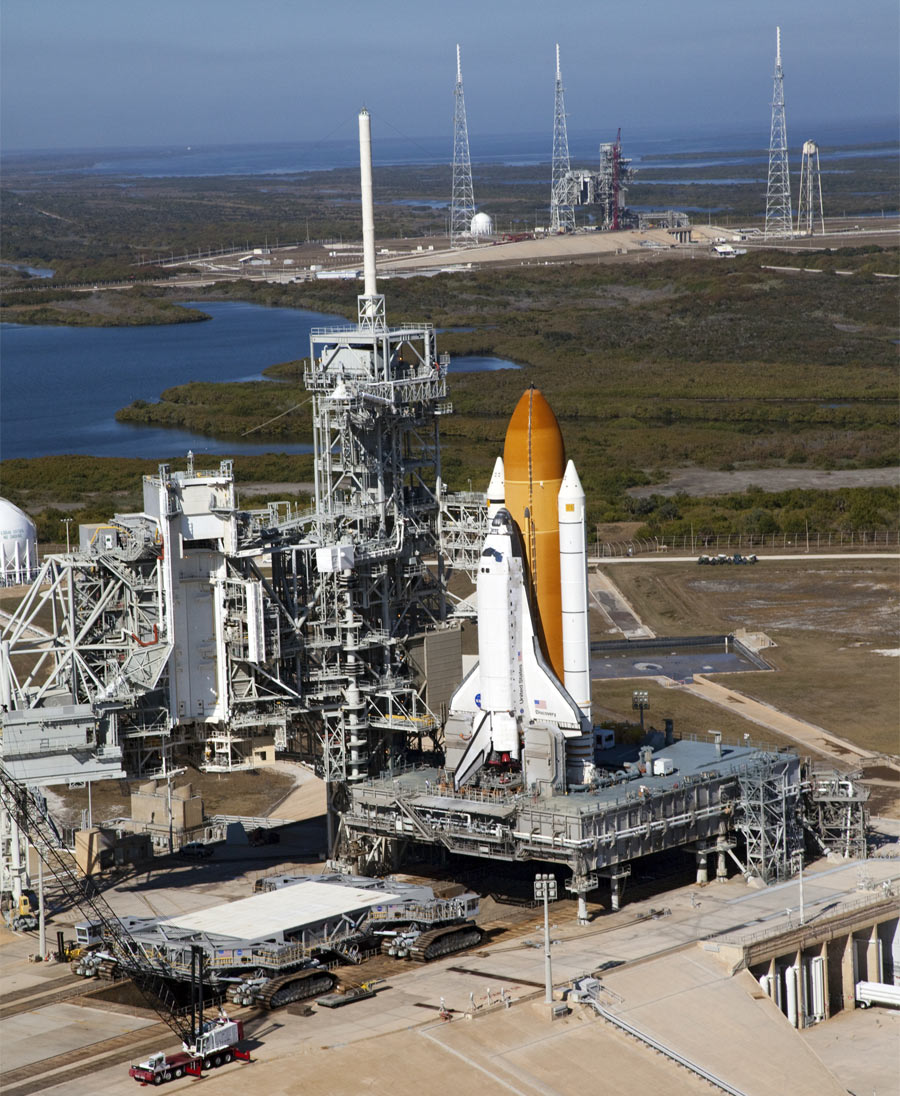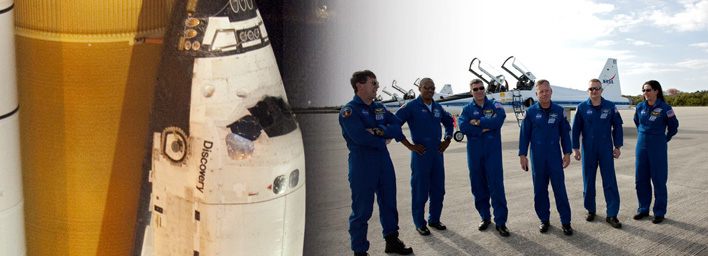Space Shuttle Discovery to Launch on Final Mission Today

CAPE CANAVERAL, Fla. – After nearly 27 years of spaceflight, NASA's space shuttle Discovery is ready for its finale.
Sitting on the launch pad, hours away from rocketing into orbit one last time, Discovery is poised to blast off today (Feb. 24) at 4:50 p.m. EST (2150 GMT) from Launch Pad 39A here at the Kennedy Space Center.
Discovery's STS-133 mission will be the shuttle's 39th and final flight. The workhorse orbiter, the oldest and most-flown shuttle in NASA's fleet, will be retired at the end of its 11-day mission to the International Space Station. To date, Discovery has traveled 143 million miles and carried 246 crewmembers into space since its first flight in 1984, NASA officials said. [Gallery: Building Space Shuttle Discovery]
Final launch ahead
On its 11-day mission, Discovery will deliver supplies, including critical hardware and a permanent storage closet, to the International Space Station. The shuttle also will ferry a new permanent resident to the station – a humanoid robot assistant called Robonaut 2.
The mission is commanded by veteran NASA astronaut Steven Lindsey. Pilot Eric Boe and mission specialists Alvin Drew, Steven Bowen, Michael Barratt and Nicole Stott will also be aboard Discovery for its last flight.
Bowen was a last-minute addition to the crew. He replaced astronaut Tim Kopra as the flight's lead spacewalker after Kopra was injured in a bicycle accident last month.
Breaking space news, the latest updates on rocket launches, skywatching events and more!
NASA technicians will begin filling Discovery's enormous 15-story external fuel tank at 7:25 a.m. EST (1225 GMT) in preparation for the launch.
The roughly three-hour fueling process, referred to as "tanking," involves filling the tank with more than 500,000 gallons of liquid oxygen and liquid hydrogen. This propellant will power Discovery's three main engines during liftoff and ascent into orbit.
"We're really looking forward to a very action-packed, successful mission," Mike Moses, NASA's shuttle integration manager, said in a news briefing yesterday.
Long road to liftoff
The final flight of Discovery was delayed several months by issues with the shuttle's external tank. Following a scrubbed launch attempt on Nov. 5, cracks were detected on several of the tank's structural ribs.
Repairs were made to the initial cracks, but the shuttle's launch was repeatedly delayed to give engineers more time to determine the root cause of the problem.
Discovery was rolled back to NASA's cavernous Vehicle Assembly Building Dec. 22 for additional testing. After more cracks were found, metal reinforcements were affixed to the structural ribs, called stringers, and a new layer of foam was applied over the top.
NASA cleared the shuttle soon after, and for the second time, Discovery made its slow crawl to the launch pad in preparation for its final journey into space.
Discovery's flight marks NASA's 133rd shuttle mission, and is one of the final three shuttle flights before the space agency brings its 30-year space shuttle program to a close later this year.
You can follow SPACE.com staff writer Denise Chow on Twitter @denisechow as she covers Discovery's final space voyage from Cape Canaveral, Fla. Visit SPACE.com for complete coverage of Discovery's final mission STS-133.

Denise Chow is a former Space.com staff writer who then worked as assistant managing editor at Live Science before moving to NBC News as a science reporter, where she focuses on general science and climate change. She spent two years with Space.com, writing about rocket launches and covering NASA's final three space shuttle missions, before joining the Live Science team in 2013. A Canadian transplant, Denise has a bachelor's degree from the University of Toronto, and a master's degree in journalism from New York University. At NBC News, Denise covers general science and climate change.

